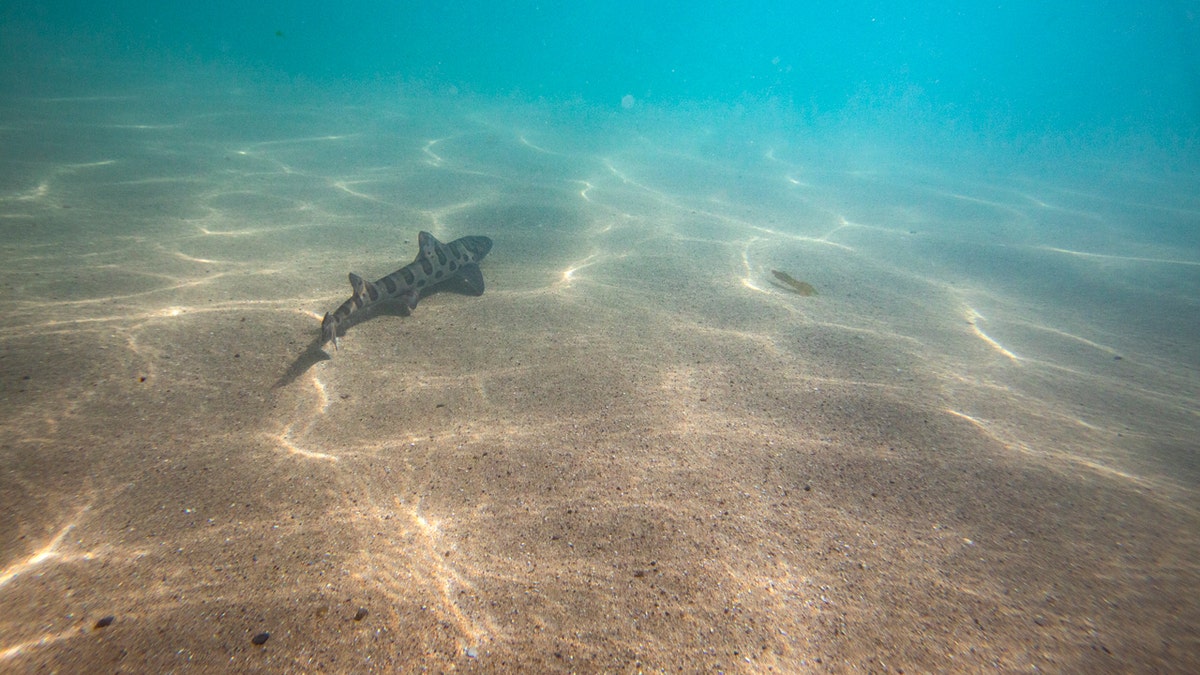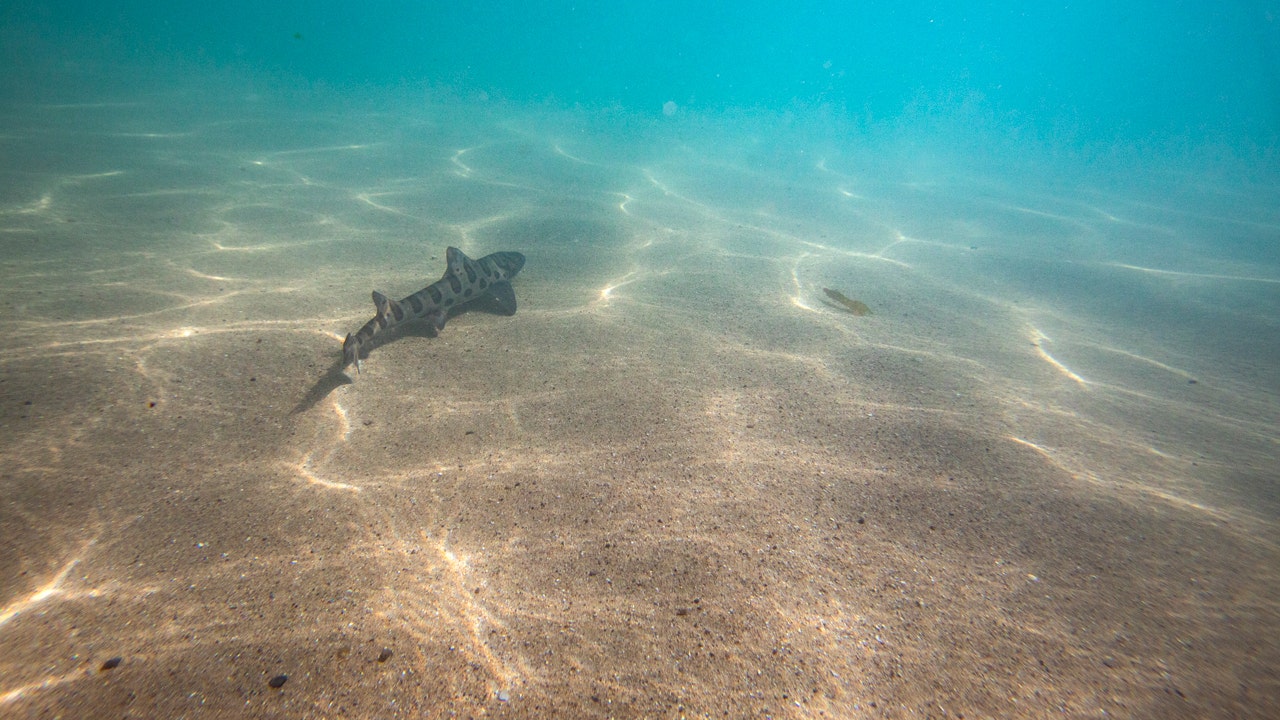Oceans around the globe have become darker over the last two decades, leaving researchers fearful for their marine inhabitants, according to a new study.
Professor Thomas Davies of the University of Plymouth said in a study published in the Global Change Biology journal there is growing concern for the marine ecosystem.
Satellite data from NASA’s Ocean Color Web data portal showed 21% of the planet’s oceans had darkened between 2003 and 2022.
According to Davies, the majority of marine life lives in the photic zones of the ocean, which is where sufficient light penetrates to stimulate photobiological processes.
RARE COLOSSAL BABY SEA CREATURE CAUGHT ON CAMERA FOR THE FIRST TIME

Oceans around the world have grown darker over the last two decades, leaving researchers fearful about marine inhabitants, a new study claims. (AP Photo/Thanassis Stavrakis, File)
The photic zone, which is 200 meters deep, is where global nutrients and carbon budgets sustain the planetary fish markets.
This is the area where light reaches marine life that lives closer to the surface of the ocean.
These ocean inhabitants rely on both the moonlight and sunlight for hunting, mating, reproduction and other important milestones.
SPOOKY DEEP-SEA FISH RARELY SEEN BY HUMANS CAUGHT ON CAMERA IN SHALLOW WATER: ‘NIGHTMARE FUEL’

The darkening of the ocean could affect marine life around the world, a new study says. (Kevin Carter/Getty Images)
The upper level of the ocean is where microscopic organisms and different types of plankton live.
With the oceans beginning to darken, it will cause creatures that rely on light to begin moving closer to the surface, potentially creating a cramped living space.
Using satellite data and an algorithm-derived measure of the attenuation of light in seawater, Davis was able to measure how deep each photic zone was around the world.
Among the darker oceans, 9% of their photic zones were 50 meters more shallow, and 3% of the oceans’ photic zones were 100 meters more shallow.

Darker oceans could prompt marine life to move closer to the surface, resulting in a cramped living space, according to the study. (AP Photo/Elaine Thompson, File)
The reasoning behind the darkening of oceans far offshore is less clear.
Global warming and changes in ocean currents are thought to be involved in this phenomenon, according to the study.
Despite an overall darkening, about 10% of oceans, or 37 million square kilometers, have become lighter over the past 20 years, the study found.
CLICK HERE TO GET THE FOX NEWS APP
It also found that most coastal areas have seen an increase in light. However, the study found that this does not translate into a net reduction in photic zone depth near shorelines.
Davies predicts the implications of ocean darkening could be severe for marine food webs, global fisheries and carbon and nutrient budgets.
Nick Butler is a reporter for Fox News Digital. Do you have any tips? Reach out to [email protected].








